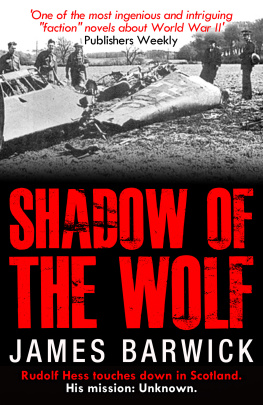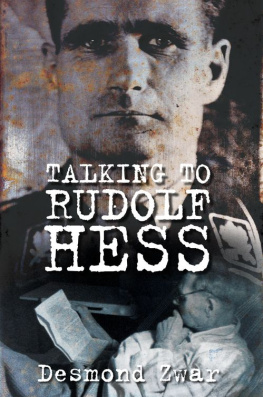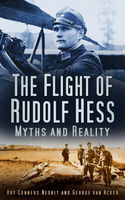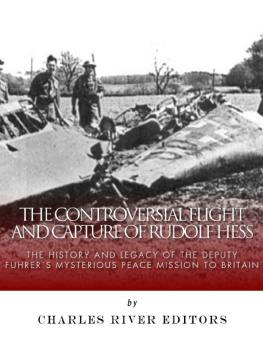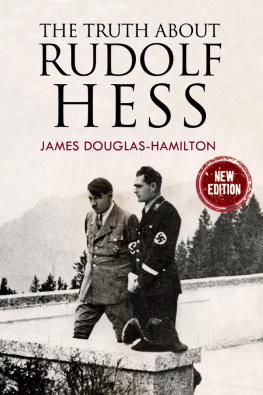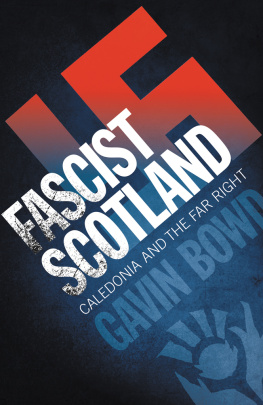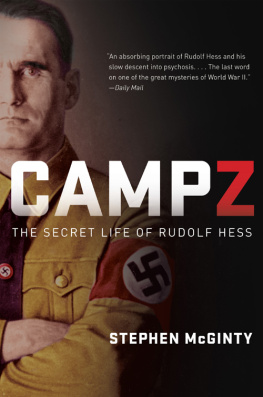Shadow of the Wolf
James Barwick
Donald James and Tony Barwick, 1978
Donald James and Tony Barwick have asserted their rights under the Copyright, Design and Patents Act, 1988, to be identified as the author of this work.
First published in 1978 by William Collins Sons & Co.
This edition published in 2015 by Endeavour Press Ltd.
Table of Contents
Prologue
October 2, 1917. Flanders. Midnight. On the rusting strand of barbed wire above his head hung a fragment of cloth with a dented brass button still attached. In the dark he strained his eyes, trying to decide whether the fragment was British khaki or German field grey. It made no difference, of course, but the concentrated effort of decision helped quell the need for muscular movement. It was a trick he had learned long ago in no-mans-land when an English fighting patrol was passing a few yards away in the dark.
He could hear their low whispers now, the squelch of mud and water as they moved slowly through the Flanders mire.
He concentrated on the brass button as the moon emerged briefly from behind a skein of cloud. From the corner of his eye he could see the line of crouched figures, bulky in their greatcoats and flat steel helmets, the feared spiked wooden clubs the Tommies favoured for trench fighting held ready in their hands. One movement, he knew, would bring them down upon him, kicking and clubbing with the animal ferocity which all front-line soldiers developed to hide their own fear of death.
A mud-covered boot squelched inches from his face. The skirt of a greatcoat brushed damp across his cheek. Strange English voices cursed softly above him, then passed on.
After a few minutes he rose and unwrapped a small white terrier from the folds of his grey trenchcoat. Then, tucking it under his arm, he scrambled out of the shell hole to stand looking across the broken land towards the banked trench systems ahead.
He found he loved this landscape, the shattered tree stumps, the waterlogged shell holes, the broken wheels of gun limbers, the endless coil of barbed wire. At times like now he would wander with his dog and gun like some Swabian squire walking his acres. On nights like this, when the fighting patrols had all returned and the October mists rolled and parted before him, this was his domain, harsh, ugly, brutal but never to him repellent.
*
In the entrance to the timber-braced earth bunker which was the forward headquarters of the 16th Bavarian Infantry Regiment, the two officers watched the flashes of gunfire pecking the skyline somewhere far to their right. The sound rumbled faintly towards them.
British twenty-five-pounders. Well on the other side of the river, the Major said, lifting back the mud-stained blanket that covered the doorway.
Lieutenant Rudolf Hess followed him in. The hurricane lamps swung from the timber supports, gleaming yellow light on the trestle tables and the peasant French potbellied stove.
The Major took his tin coffee cup from the table. Company reports in yet? he asked the new adjutant.
Both reserve companies, sir. The lines down to the forward company. Theyre sending a runner.
The Major nodded, then smiled as a small white terrier pushed aside the bottom of the blanket hanging in the doorway and scuttled across the earth floor to the warmth of the stove.
A moment later the blanket was lifted aside and the runner entered. Forward company night report, Lieutenant.
He handed the report to Hess and stood informally, his head held slightly to one side, one hand curling his long moustache.
Theres some coffee on the stove, the Major said. Warm yourself up before you go back.
No, thank you, sir.
The Major smiled to himself and turned away. He knew that would be the answer. As you choose, he said over his shoulder. Dismissed.
The thin-faced man turned towards Hess and nodded sharply. Then, with a peremptory click of his fingers which brought the terrier to him, the runner turned and left the bunker.
A strange man, Hess said quietly.
Crazy, the Major agreed.
But Hess had not heard him. His eyes were still turned towards the hanging blanket through which Adolf Hitler had just passed.
*
July 20, 1936. Olympia, Greece. As the sun rose above the secluded Peloponnesian vale of Aphios, fifteen Greek girls, the folds of their gowns held at the waist with gilded cord, their fair hair drawn back from their foreheads and gathered in a heavy knot at the nape of the neck, stood unmoving on the marble slab which had marked the starting line for Olympic runners almost three thousand years before.
In the stunning silence of a Greek noon the leading girl touched a polished iron bowl with a narthex wand. A mountain horn sounded eerily. As the straw-bound tip of the narthex stalk began to crackle and smoke in the suns reflected rays, a young man in loincloth and sandals knelt before the firebearer. Raising the silvery torch in his hand to the now flaming wand, he received the Olympic Fire. Then, turning, he ran past the broken statues of the gods, the fallen columns of the Temple of Zeus and out on to the ancient road to Athens and the first stage of a three-thousand-kilometre relay to the Olympic Stadium in Berlin.
Through the mountainous Peloponnesus, through the baked, treeless plains of northern Greece, the runners carried the torch, each man covering a kilometre before the flame passed on. From Kula at the border the Olympic Fire was carried into Bulgaria, then in 238 one-kilometre stages cross-country to Yugoslavia. Through Hungary into Austria the relay continued, and at twilight the runner carried his silver torch high through a Vienna decorated with national banners and Olympic rings. Then on across Czechoslovakia, until at Hellendorf the Greek flame reached German soil.
To Germans it was a homecoming. Saluted by the bells of ancient cathedrals, greeted by swastika-bedecked villages and floodlit monuments, exhorted every kilometre of the way by Wehrmacht bands and companies of the Hitler Youth trumpeters, the flame was carried towards Berlin.
At the kilometre stone of the old Kaiserdamm the final runner took the fire. To a roar from forty thousand escorting Storm Troopers, Otto Schilgen, tall, slim, Nordic-blond and clad in white, turned towards the Reichssportsfeld and the Olympic Stadium.
High in the glass-fronted loge, above the packed segments of seated spectators, Adolf Hitler first saw the afternoon sun glimmer on the silver torch as the runner entered the stadium from the eastern tunnel. Massed trumpets flared, twenty thousand white doves rose and wheeled across the sky, Olympic banners surmounted by the Nazi eagle broke out along the stadiums rim and one hundred thousand voices importuned the leader with a repeated Heil Heil Heil
Standing beside the brown-uniformed figure of Adolf Hitler, Rudolf Hess trembled at the magnitude of his Fhrers triumph. From all the competitions of the next weeks, from the exhilaration of success and the desolate loneliness of defeat, one victor would emerge above all others. Adolf Hitler had made these Games his own. The world could no longer doubt the power, the organization and leadership of the Nazi State. As the torch touched the vast bronze cauldron, capping it with flame, the Fhrer of the Third Reich declared the XIth Olympiad open.
*
On the mild overcast morning of August 10, in the chestnut forests beyond the Berlin suburb of Wannsee, the forty-two competitors in the Modern Pentathlon event were spread across almost half a mile of woodland track as the leaders approached the final marker in the four-thousand-metre cross-country run. Out near the front the slim American, Lieutenant Charles Leonard, and the muscular Italian, Captain Silvano Abba, desperately forced the pace in an attempt to collect maximum points. Both knew this was the weakest event for their main rival, Handrick, the German gold-medal favourite.

